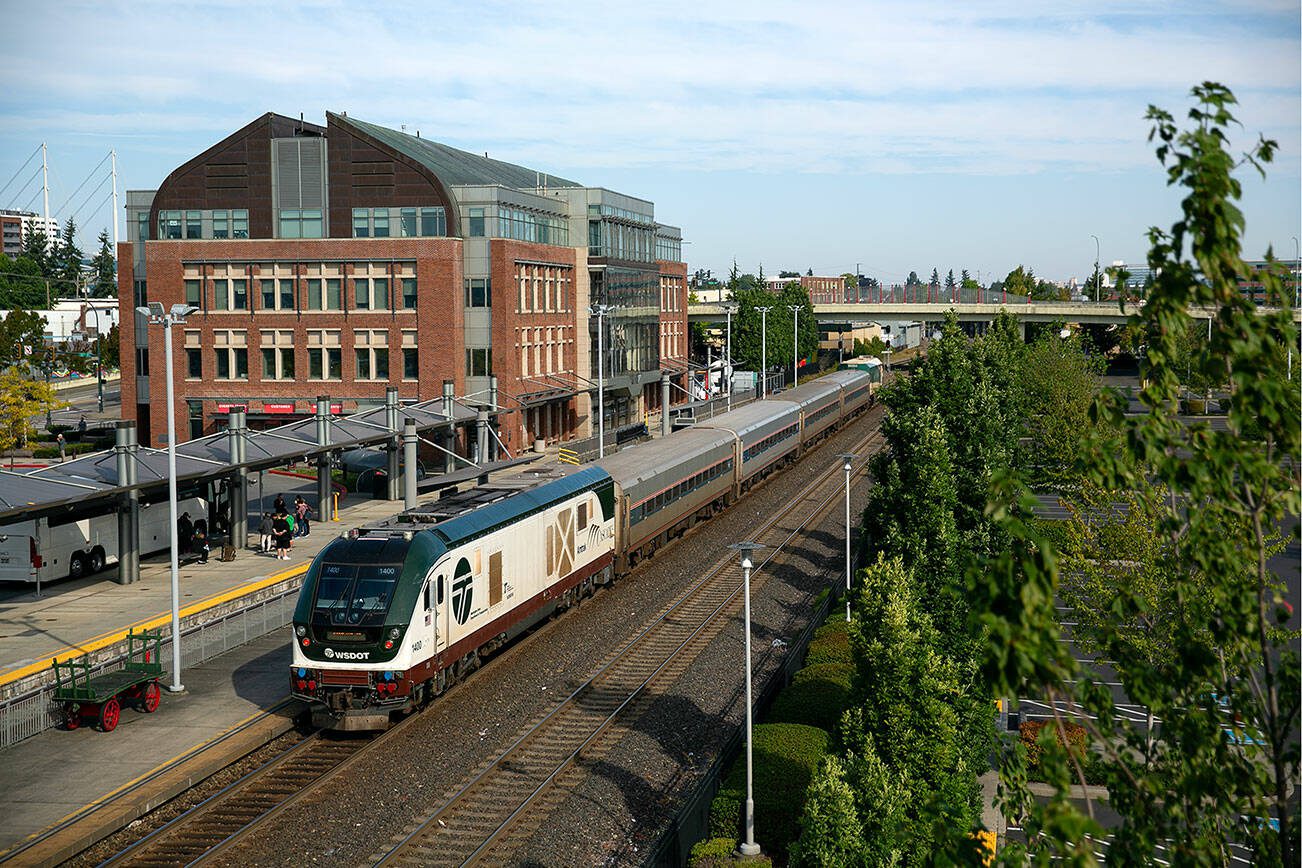
Everett, Washington, is a vibrant city with a rich history and a promising future. As a crucial part of the Puget Sound region, Everett boasts a robust transportation and infrastructure system that facilitates the movement of people and goods, supports economic growth, and enhances the overall quality of life for its residents. From its well-connected road network to its efficient public transportation options, Everett’s infrastructure plays a pivotal role in shaping the city’s identity and development. In this article, we’ll delve into 8 fascinating facts about transportation and infrastructure in Everett, Washington, shedding light on the city’s innovative initiatives, key developments, and the impact of these systems on the community.
Key Takeaways:
- Everett, Washington boasts the largest public marina on the West Coast, supporting maritime trade and recreational boating, contributing to the city’s economy and transportation network.
- The city’s transportation infrastructure includes a regional airport, extensive public transit, major highways, and a focus on sustainable travel options, enhancing accessibility and connectivity for residents and visitors.
Everett, Washington is home to the largest public marina on the West Coast.
Did you know that the Port of Everett operates the largest public marina on the West Coast? This bustling marina offers 2,300 slips and plays a pivotal role in supporting the local economy by facilitating maritime trade and recreational boating. The Port of Everett is a major transportation hub and a key player in the city’s infrastructure.
The city is served by an extensive network of public transportation.
Everett boasts an extensive public transportation system, including buses and paratransit services, providing essential mobility options for residents and visitors alike. The public transit network contributes significantly to the city’s accessibility and is a vital component of its transportation infrastructure, catering to the diverse needs of the community.
Everett is home to a major aerospace industrial center.
With the Boeing Company’s largest manufacturing plant located in Everett, the city has earned its reputation as a prominent aerospace industrial center. This facility, known for assembling wide-body commercial airplanes, is a key contributor to the local economy and a cornerstone of Everett’s infrastructure, playing a pivotal role in the transportation sector.
The city is intersected by several major highways.
Everett is strategically located, intersected by multiple major highways, including Interstate 5 and State Route These critical roadways serve as vital conduits for the city’s transportation network, connecting Everett to other urban centers in the region and facilitating the movement of goods and people.
Everett’s transportation infrastructure includes a deep-water seaport.
The Port of Everett operates a deep-water seaport, providing crucial access for maritime shipping and cargo transport. This seaport serves as an essential gateway for international trade, enhancing the city’s economic vitality and reinforcing its position as a key player in the global transportation network.
The city is home to a regional airport.
Everett is home to Paine Field, a regional airport that plays a significant role in the city’s transportation infrastructure. This airport facilitates domestic air travel, offering convenient connections to various destinations and contributing to the region’s overall accessibility.
Everett’s infrastructure features an extensive network of bike lanes and pedestrian pathways.
With a focus on promoting sustainable and active transportation, Everett has developed an extensive network of bike lanes and pedestrian pathways. This infrastructure encourages alternative modes of travel, fostering a healthier and more environmentally friendly urban environment while enhancing the city’s overall transportation accessibility.
The city’s infrastructure encompasses a robust system of freight railroads.
Everett’s transportation infrastructure includes a robust system of freight railroads, facilitating the efficient movement of goods and commodities. These railroads play a crucial role in supporting the city’s industrial and commercial sectors, contributing to the seamless flow of freight within and beyond Everett.
Conclusion
Everett, Washington, boasts a rich history and a vibrant economy, supported by a well-developed transportation and infrastructure system. From its extensive network of roadways to its efficient public transportation system, the city is committed to providing convenient and reliable transportation options for its residents and visitors. With ongoing efforts to enhance sustainability and reduce traffic congestion, Everett is poised for continued growth and development. The city’s dedication to maintaining and improving its infrastructure ensures that it remains a dynamic and accessible urban center for years to come.
Now, let's move on to the FAQs.
FAQs
Q: What are the main modes of public transportation in Everett?
A: Everett offers a comprehensive public transportation system, including buses, paratransit services, and vanpools, providing convenient options for commuters and residents.
Q: How is Everett addressing traffic congestion and infrastructure maintenance?
A: The city is implementing various strategies, such as road maintenance programs, traffic management initiatives, and infrastructure upgrades, to alleviate congestion and ensure the efficient operation of its transportation network.
Q: Are there any major ongoing infrastructure projects in Everett?
A: Yes, Everett is actively involved in several infrastructure projects, including road expansions, bridge improvements, and public transit enhancements, aimed at enhancing connectivity and accommodating the city’s growth.
Q: What initiatives is Everett undertaking to promote sustainable transportation?
A: The city is focused on promoting sustainable transportation options, such as bike lanes, pedestrian-friendly infrastructure, and initiatives to reduce emissions, aligning with its commitment to environmental stewardship.
Q: How does Everett’s transportation system contribute to the city’s economic development?
A: A well-functioning transportation system is integral to Everett’s economic vitality, facilitating the movement of goods and people, supporting businesses, and attracting investment to the region.
Was this page helpful?
Our commitment to delivering trustworthy and engaging content is at the heart of what we do. Each fact on our site is contributed by real users like you, bringing a wealth of diverse insights and information. To ensure the highest standards of accuracy and reliability, our dedicated editors meticulously review each submission. This process guarantees that the facts we share are not only fascinating but also credible. Trust in our commitment to quality and authenticity as you explore and learn with us.
